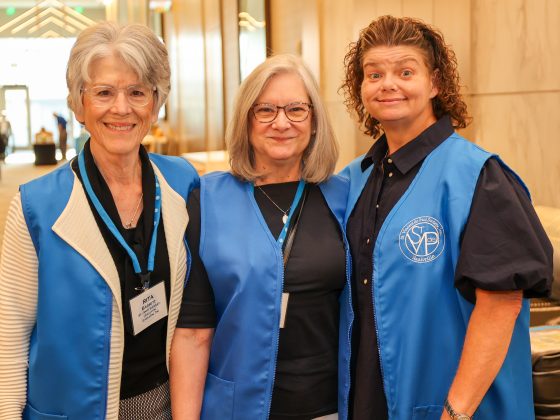The introduction to the original Rule in 1835 reminded members, following the model of St. Vincent, to “banish political discussions forever from our meetings” avoiding “those irritating questions which divide mankind” so that we can remain united in the ministry of charity. The Society, it declared, “is all charity; politics are wholly foreign to it.” [Rule, Intro, 20-22]
It is a reassuring reminder that however we may feel politics divides people today, it has always been so, but the example of our forebears in the Vincentian family shows us the way to be uniters, not only within our Conferences, but in our society at large.
In Frédéric and Rosalie’s time, “divisiveness” in politics meant a great deal more than memes, podcasts, and insults. Often, politics meant taking up arms, manning the barricades, and overthrowing the government. In the midst of revolution, it was perhaps easier for them to see how picking a side could only shut them off from caring for people in great need.
Bl. Rosalie made this clear, declaring, on threat of arrest for aiding the wrong side of the revolution, “I am a Daughter of Charity. I do not have a flag. I go to the aid of the unfortunate wherever I encounter them … I promise you, if ever you, yourself, are being pursued and you ask me for help, it would not be refused you.” [Sr. Rosalie, Sullivan, 168]
To be sure, both our church and our Rule encourage us as individuals to be involved in politics, and to “bring Christian values to political matters.” Indeed, Frédéric himself served in the National Guard and once ran for a seat in the legislature. But the Society itself does not identify with any political party, nor discriminate among those in need based on political opinions. [Rule, Part I, 7.8 & 2.4]
As a “voice for the voiceless,” we advocate not for a party, but for justice; as Vincentians, we seek “to make charity accomplish what justice alone cannot do.” [Letter 136, to Lallier, 1836]
Our commitment to an apolitical approach to works of charity requires both courage and humility; the acceptance that no matter how strong our personal feelings may be, we are called first to render unto God what belongs to God.
Contemplate
Are there “irritating questions” I need to let go in my Vincentian relationships and works?




1.3 Any form of personal help…
No work of charity is foreign to the Society. It includes any form of help that alleviates suffering or deprivation and promotes human dignity and personal integrity in all their dimensions.